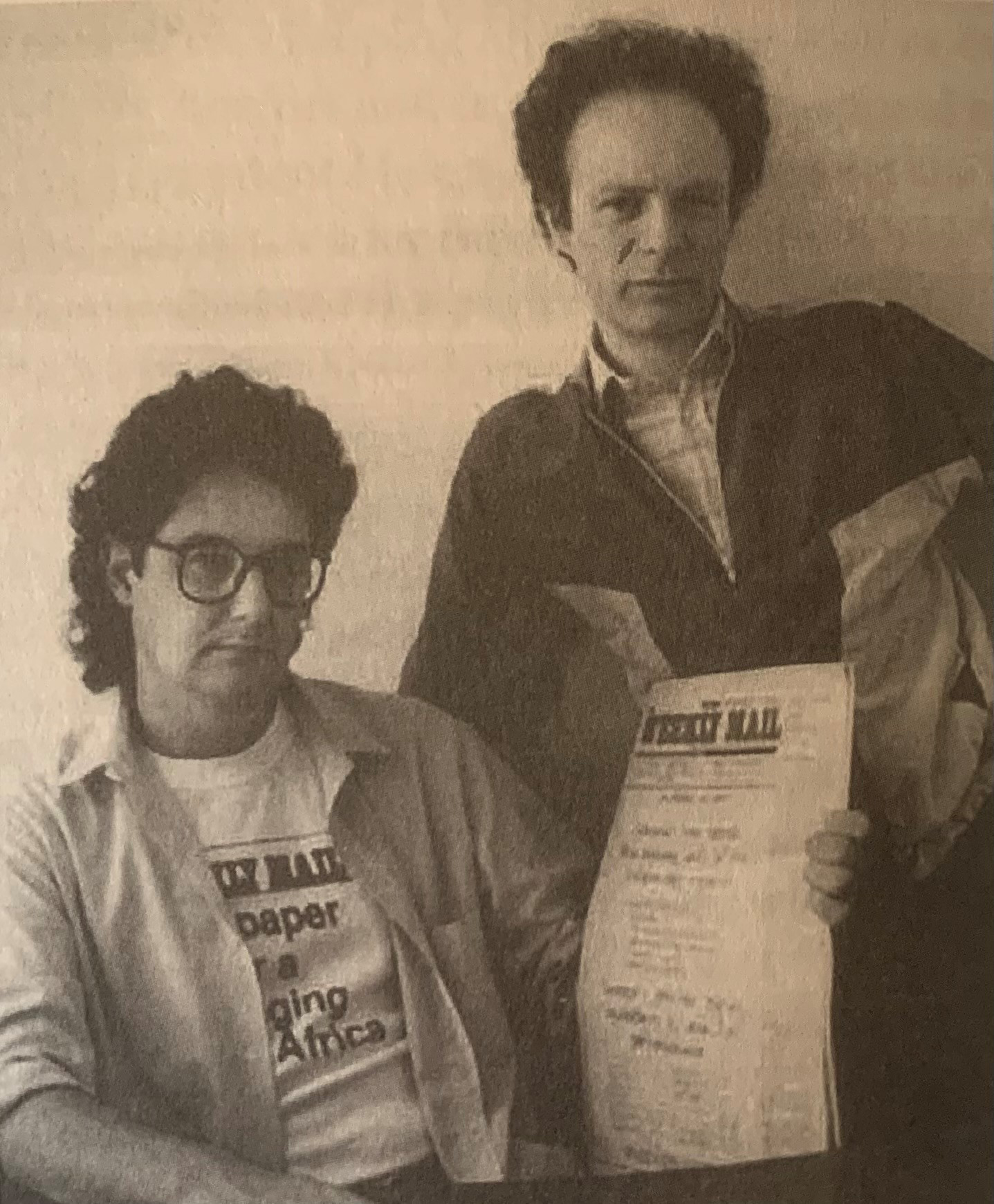click to dowload our latest edition
CLICK HERE TO SUBSCRIBE TO OUR NEWSLETTER


Published
2 years agoon
By
Peta KrostSouth African journalist and author, Jonathan Ancer, has just brought out a book, Mensches in the Trenches, which documents the “Jewish foot soldiers in the anti-apartheid struggle”. The SA Jewish Report speaks to him.
How did you get involved and why?
The South African Jewish Board of Deputies commissioned me to write the book. It was an opportunity for me to do what I love – uncovering and documenting important aspects of our history and the remarkable people who played a role in the country’s freedom. I was also curious to find out what motivated these people to get involved in the fight for human rights.
What was the reason for the project?
The project’s primary purpose was to record and celebrate the contributions made by unsung Jewish South Africans who stood up to injustice, and to remember activists who are in danger of being forgotten.
Describe your research process.
I interviewed the “mensches” or, if they were no longer alive, their family members. I augmented these interviews with information from documents, press clippings, books, and archival material.
How did you decide who went where?
I divided the book into sections based on broad themes that were more or less chronological. From the torchbearers, trailblazers, and trade unionists in the first half of the 20th century to the conscientious objectors and student activists in the 1980s and 1990s. In between, there were playwrights, lawyers, journalists, educationalists, rabbis, a book seller, a businessman, an archaeologist, and an architect.
How did you select the people you wrote about? What criteria did you use?
The selection was always going to be difficult because many Jews played a role in the fight against apartheid in one way or another. We had a small committee that consulted people and put forward names, but it soon became apparent that we would never be able to include everyone, and we realised we shouldn’t even try.
If we included everyone, we would have ended up with a phone book that just listed people’s names – and we still would have left people out. We had to draw a line at some point otherwise this project would have gone on and on.
There have been so many Jews involved in the struggle in some way or another. Some obvious ones have been left out. Why?
Precisely because they were obvious. Though some of these obvious people play a cameo role in the book, we didn’t want to rehash the stories of the well-known Jewish activists. The Slovos, Bernsteins, and Goldbergs are part of the country’s political record, but Jock Isacowitz, who fought for equality and was banned and jailed for his activism, isn’t.
We wanted to focus on activists like Ivan Schlapobersky, who made their contribution under the radar and out of the public eye. Ivan hid anti-apartheid fugitives, and would have faced a hefty prison sentence if he’d been caught.
Then there’s advocate Denis Kuny, who personified the pursuit of justice for 60 years. He was involved in momentous political trials, but he also defended untold ordinary people charged with a range of petty offences (like pass-law breaches) and not so petty offences (like high treason).
What did this project mean to you?
A great deal. I started working on the book soon after coronavirus decided to hitchhike around the world. It was a dark time, with lockdowns, political upheaval, and economic doom-and-gloom, but this project gave me an opportunity to escape from all that and meet a range of extraordinary people, people who bring light into the darkness. It was hugely inspiring. I was moved by their courage and humbled by their sacrifices.
What were your biggest lessons?
Although our newspapers are filled with stories about corrupt politicians, I learnt that there are many ordinary people who are principled and ethical. I also had an opportunity to learn about my own family history when I researched Solly Sachs, one of the most successful trade unionists in South Africa.
My grandfather, Chaim Ancer, was a member of the Garment Workers Union, which was led by Solly. This gave me insight into my grandfather’s life when he arrived in South Africa a century ago, which I found very meaningful.
Which of your characters most impressed you and why?
They’re all impressive, but if I had to choose, I would say that the identical twins, Norman and Leon Levy, made a huge impact on me. They began their political activities as schoolboys and campaigned for freedom and equality all their lives. They stood in the dock with Nelson Mandela in the Treason Trial, and lived a life of protest, picket lines, interrogation, torture, solitary confinement, jail, exile and, eventually, democracy.
I interviewed them when they had just turned 90, and they were filled with humility and humour. If there were more people like the Levy twins in the world, the world would be a much better place. Sadly, Norman died just before the book was published.
Who is this book is aimed at?
At first glance, it might seem that Mensches in the Trenches is of interest only to Jewish South Africans but I believe it’s got a much wider audience. Anyone interested in history and politics will be fascinated to learn about these colourful characters and the role they played in the fight for liberation. Through the eyes of the people profiled, the book provides fresh perspectives on the country’s history.
What do you want the readers to gain from this book?
To remember generations of courageous people, to reflect on the sacrifices they made, and to be inspired to become mensches themselves. The world needs more mensches to fight against the tide of corruption and greed.
